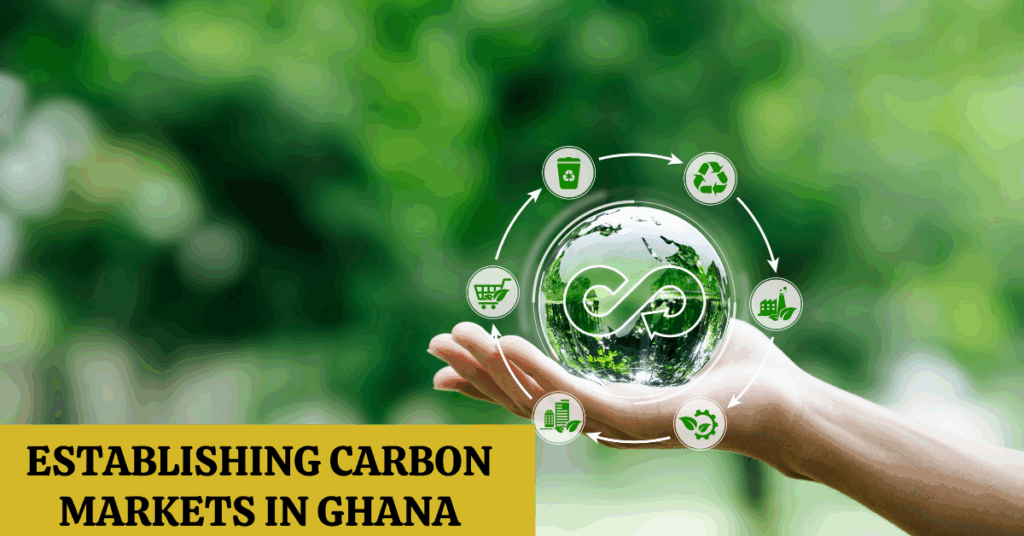The Ghana Carbon Market Office and the Ghana Carbon Registry are institutions under the framework that have helped to actualize Ghana’s Article 6.2 framework. The Ghana Carbon Market Office was established under the Ghana Carbon Market Framework and mandated under the Environmental Protection Agency (EPA) Act, 1994 (Act 490). The Office is the department that is to give administrative and technical services to the public and help make the Ghana carbon market policy effective. The Carbon Market Office (CMO) is hosted by the EPA’s Climate Change Unit. The CMO is required to perform the functions ascribed to them under the framework by implementing the policies effectively for the aim of the framework, which is the reduction of the emission of greenhouse gases to be achieved and also to advise the Minister accordingly.
It is worth noting that the establishment of the Ghana Carbon Registry (GCR) goes a long way to help actualize Ghana’s Carbon Market framework. GCR functions as a database for collecting and tracking transactions from mitigation activities at sector, city and corporate levels as well as having an independent grievance mechanism that is established to address complaints and appeals.
Ghana’s implementation of the Paris Agreement is commendable. Ghana has published Article 6, Paragraph 2 Initial Report (AIR) to the UN Framework Convention on Climate Change (UNFCCC) in accordance with the authorization of ITMOs from the Cooperative Approach between the Republic of Ghana and Switzerland on the promotion of climate-friendly agriculture practices for sustainable rice cultivation in Ghana.
The Intergovernmental Panel on Climate Change (IPCC) released a report in 2021 stating that greenhouse gas emissions are still increasing across the globe, thus calling for swift action. The world is currently off-track in meeting the 1.5C˚ target. In Ghana, leading up to COP 28, there is a critical need for heightened awareness among businesses and the public. Sensitization efforts are imperative to accelerate the energy transition and effectively bridge the emissions gap.
Harriet Aboagye – Kumi & Nana Amma Asare-Boateng Pupils,Ntrakwah & Co

